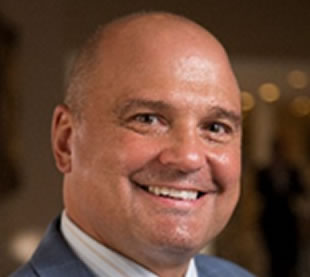
3 Core Savings Tips for Millennials In Their 30s
If you’re in your 30s, now is the time to save. There are countless articles on the need for Millennials to save, but they tend to target people in their 20s and often overlook the early 30s crowd.
I like to call you early-30-somethings “young accumulators.” You have careers and skills that you have sharpened throughout your 20s, and now you’re looking even further ahead. With the burden of student loans and often a high tax bracket to deal with, you are or may be considering attainable savings strategies. In my work with young executives, physicians, lawyers, and entrepreneurs, I’ve found that the 3 core savings tips below can help point you toward the wealth accumulation you crave.
Maximize Your Savings as Early as Possible
In my experience, I’ve found that people in their early 30s often fall into one of two savings camps—putting off saving for the future or saving only a minimum amount now. These are the wrong strategies.
Instead, save as much as you can now. The phrase, “It’s not timing the market; it’s the time in the market,” is a popular phrase for good reason. The so-called “Rule of 72” states that in order to find the number of years required to double your money at a given interest rate, divide your compound rate of return into 72. The result is the approximate number of years that it will take for your investment to double. Let’s play this out. If your rate of return is 7.2 %, it will take you approximately 10 years to double your money. So, say you invest $1,000 at age 30 and 7.2% is your hypothetical assumed rate of return. Without making any additional contributions, the total approximate value of your investment would double to $2,000 by the time you are age 40, double again to $4,000 when you hit age 50, and reach $8,000 by the time you are 60. If instead you chose to wait 10 years and invested your first $1,000 at age 40, then at age 60, you would only have $4,000—a 50% difference! Of course rates of return will vary, but this example shows the impact of how the compound growth can be beneficial over the long term.
If you’re in your 30s and do not have discretionary income that you can save now, I strongly suggest you look into a supplemental part-time job in an area of interest to you. I’ve mentioned in my previous articles the benefits of having what I like to call “hobby jobs.” During my 20s and 30s, in addition to my day job, I taught evening classes at University of Maryland. I know firsthand that a secondary paycheck works wonders in amplifying your savings, and if your part-time gig is something you enjoy, it doesn’t feel like a job at all.
Take on as Much Risk as Tolerable
As a young accumulator, you are in the position to take on more risk than a near retiree—you are a longer-term investor, and as such you may be able to embrace riskier assets. The way to grow your wealth in real terms is to earn a rate of return greater than the rate of inflation. Along with this greater potential return, there is also greater risk of loss, but that risk has to be measured against lower-risk investments that may not offer the best opportunity to hurdle the inflation rate.
You need to learn about your risk tolerance before investing in riskier vehicles. You can do this by completing a risk tolerance questionnaire and engaging with a Certified Financial Planner™, an online brokerage firm, or sometimes even an accountant. The point is that you first need to understand yourself and your feelings about risk. Then, you can work to build a portfolio that fits your needs.
Pay Yourself First
Whether it’s a vacation, a new wardrobe, or splurging on the latest technology, you face temptations daily to spend all your money. The best way to avoid overspending is to pay yourself first—in other words, send your discretionary income directly to your savings or investment account, NOT to your checking account. The idea is to fund your financial freedom before paying into the profits of all those retailers who would be glad to bump you off your financial course. That is not to say that you can’t splurge at all—in fact building a few reasonable luxuries into your budget may help you avoid frustration and stay on track over the long term.
Following these 3 tips can move you to the top of your early 30s class, and self-education will get you even further ahead. I encourage you to learn about your risk tolerance, various investments, and taxes. Be sure to consider the long-term tax implications of your retirement investments and the tax efficiency of your other investments. An effective combination of these savings tips and self-education can point your future wealth in the right direction.
Mark Avallone, MBA, CFP®, CRPS®. www.PotomacWealth.com
Securities and Investment Advisory Services offered through H.Beck, Inc., Member FINRA/SIPC. 6600 Rockledge Drive, 6th Floor, Bethesda, MD 20817 301.468.0100. Potomac Wealth Advisors, LLC is not affiliated with H.Beck, Inc.
This material represents an assessment of the market environment at a specific point in time and is not intended to be a forecast of future events, or a guarantee of future results. This information should not be relied upon by the reader as research or investment advice regarding any funds or stocks in particular, nor should it be construed as a recommendation to purchase or sell a security. Past performance is no guarantee of future results. Investments will fluctuate and when redeemed may be worth more or less than when originally invested. Diversification and asset allocation do not guarantee against loss. They are methods used to manage risk.
* Opinions expressed are subject to change without notice and are not intended as investment advice or to predict future performance.
*The economic forecasts set forth in the presentation may not develop as predicted and there can be no guarantee that strategies promoted will be successful.
* Consult your financial professional before making any investment decision.



Engage us on Facebook
Follow us on Twitter
Tweets by @mymcmedia